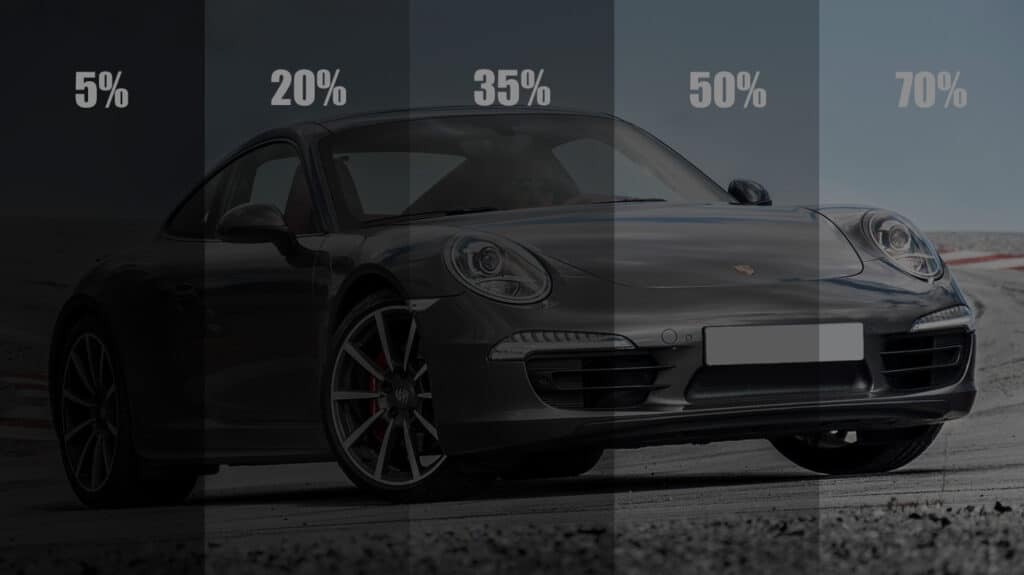Car window tinting comes with numerous benefits not only for your car but also for you. Tinted windows increase privacy and safety.
They help you stay cool during hot summer days. Additionally, they also help to reduce the load on your climate control system and do an excellent job at filtering out UV rays.
However, in order to enjoy these benefits for the longest term, one must follow the tint laws of their respective state. Every state in the country has its own rulebook regarding tint laws.
Learn more about the window tint laws in Tennessee in this guide.
Is Window Tint Legal In Tennessee?

Window tinting is legal in Tennessee and the laws concerning this modification were enacted in the state in 1990.
It is important that every car owner is aware of all the rules and regulations pertaining to car tints. Failure to comply with these rules almost always results in legal consequences.
Find below the permitted levels of window tint darkness and acceptable tint reflection in the state of Tennessee.
Permitted Window Tint Darkness

The levels of permitted window tint darkness are denoted by VLT. VLT or visible light transmission is a percentage measure of how much light can travel through a specific tint film and window.
If the percentage of visible light transmission is high for a tint film, then more light will pass through it. On the other hand, if the percentage is lower, then less light will get through it.
For example, 5% VLT means only 5% of the light will get through the tint, making it a lot darker than, say, a 40% VLT tint.
The stipulated VLT% in Tennessee varies for multi-purpose and passenger vehicles. Find more details below.
Sedans
Windshield: Windshield tint must permit over 70% light transmittance over the AS-1 line
Driver-side windows: Maximum 35% VLT is allowed
Passenger-side windows: Up to 35% VLT is allowed
Rear window: Up to 35% VLT is allowed
SUVs and Vans
Windshield: Tint used over the AS-1 line must allow for more than 70% VLT
Driver-side windows: You can apply tints with up to 35% VLT
Passenger-side windows: You can apply tints with up to 35% VLT
Rear window: You can apply tints with up to 35% VLT
Acceptable Tint Reflection

Tint reflection and darkness are two separate properties. Reflection has to do with deflection of visible light which helps to reduce glare and heat within the interior of the vehicle.
In addition to creating a sharp, mirror-like appearance on the exterior, it also provides privacy.
The laws of the state take into consideration both tint darkness and tint reflection. Both of these factors vary from one another.
However, the state of Tennessee does not permit the use of reflective tint.
Other Tennessee Tint Rules You Need to Know

Pertaining to car window tints, the state of Tennessee also has several other rules and regulations that you must follow.
- Side mirrors: The law about side mirrors in the state is vague. There are no specific restrictions regarding them.
- Colored tint: There are no restrictions on using colored tints in the state. You may use any color for their car window tint.
- Window tint certification: Manufacturers that sell tint film in the state are not required by law to certify the film.
- Certified Sticker: Car owners must have a certified sticker on their vehicle to indicate the legality of the tint.
- Medical Exemptions: Tennessee has provision for tint law medical exemptions.
- Fine for violations: If a driver is caught in violation of the state’s tint laws, they can be fined up to $300.
State of Tennessee Info

This southeastern state of the United States borders Arkansas, Missouri, Kentucky, Virginia, Georgia, Alabama, Mississippi, and North Carolina. It is the 17th most populous state.
The Mississippi River runs along Tennessee’s western border, and the Appalachian Mountains stand tall on the eastern side. The state’s largest city is Memphis, followed by its capital.
Population: 6,456,243
Capital: Nashville
Registered vehicles: 5,855,373
Total lane miles: 203,850
Number of highways: 7
Tint law references: Tennessee Statutes

